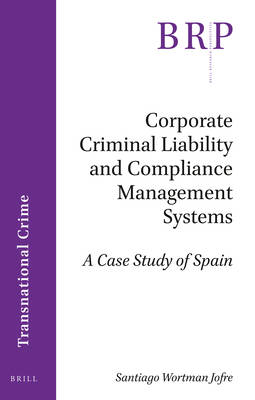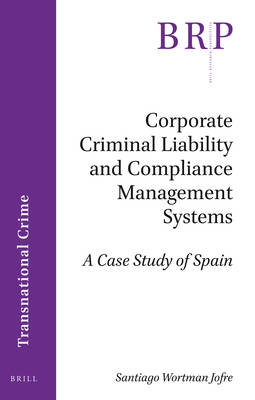
- Afhalen na 1 uur in een winkel met voorraad
- Gratis thuislevering in België vanaf € 30
- Ruim aanbod met 7 miljoen producten
- Afhalen na 1 uur in een winkel met voorraad
- Gratis thuislevering in België vanaf € 30
- Ruim aanbod met 7 miljoen producten
Corporate Criminal Liability and Compliance Management Systems
A Case Study of Spain
Santiago Wortman Jofre
€ 143,45
+ 286 punten
Omschrijving
In Corporate Criminal Liability and Compliance Management Systems: A Case Study of Spain, Santiago Wortman Jofre offers a case study where he examines the way in which Spain understands and implements Compliance Management Systems. Corporate criminal liability has become a matter of controversy in civil law countries since it challenges the traditional principle of societas delinquere non potest, by which corporations cannot be held criminally responsible.
However, corporations have taken a new position in the world's political agenda, as evidenced by the 2017 G20's High Level Principles on the Liability of Legal Persons for Corruption. The new trend in criminal law advocates for the criminal responsibility of legal persons and pushes for the implementation of Compliance Management Systems as deterrent for corporate criminality. Santiago Wortman Jofre then presents evidence on the role of criminal justice and the importance of positive stimuli requirements as effective incentives to drive companies to implement compliance programs.
However, corporations have taken a new position in the world's political agenda, as evidenced by the 2017 G20's High Level Principles on the Liability of Legal Persons for Corruption. The new trend in criminal law advocates for the criminal responsibility of legal persons and pushes for the implementation of Compliance Management Systems as deterrent for corporate criminality. Santiago Wortman Jofre then presents evidence on the role of criminal justice and the importance of positive stimuli requirements as effective incentives to drive companies to implement compliance programs.
Specificaties
Betrokkenen
- Auteur(s):
- Uitgeverij:
Inhoud
- Aantal bladzijden:
- 70
- Taal:
- Engels
- Reeks:
Eigenschappen
- Productcode (EAN):
- 9789004407732
- Verschijningsdatum:
- 20/06/2019
- Uitvoering:
- Paperback
- Formaat:
- Trade paperback (VS)
- Afmetingen:
- 152 mm x 231 mm
- Gewicht:
- 181 g

Alleen bij Standaard Boekhandel
+ 286 punten op je klantenkaart van Standaard Boekhandel
Beoordelingen
We publiceren alleen reviews die voldoen aan de voorwaarden voor reviews. Bekijk onze voorwaarden voor reviews.










